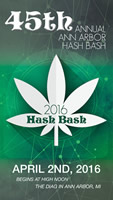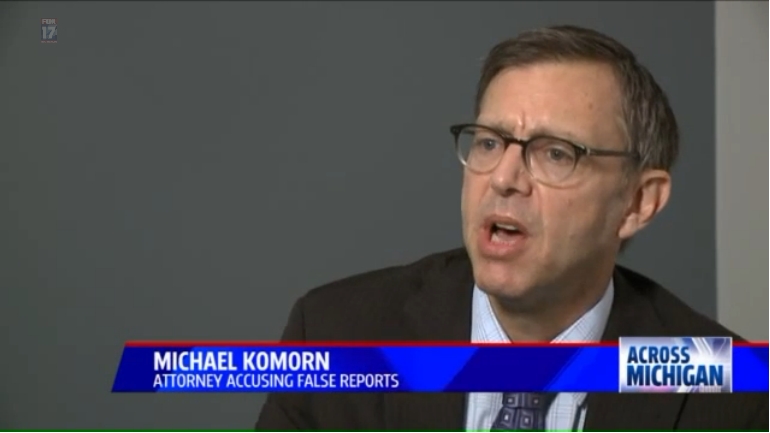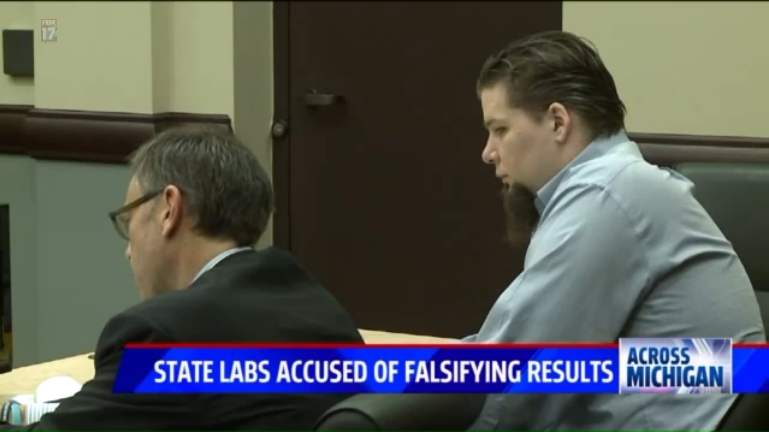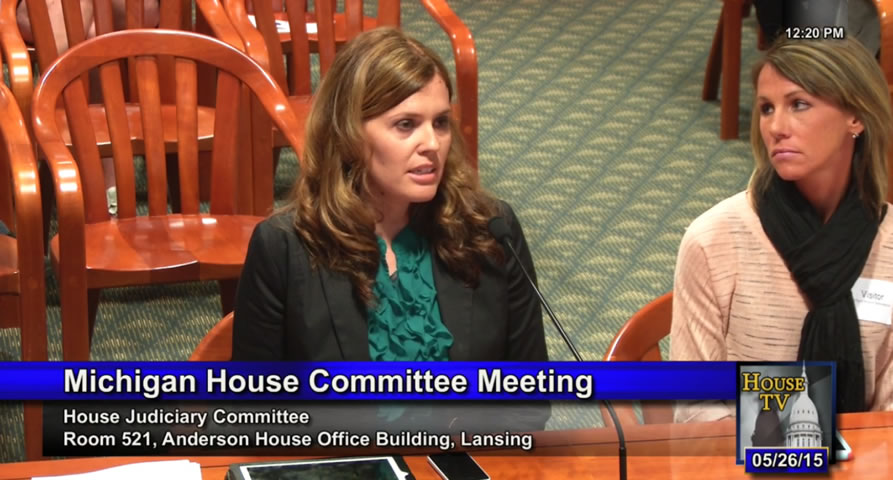
Apr 5, 2016 | Legalization, Medical Marijuana, News, Uncategorized
2016 45th Annual Ann Arbor Hash Bash
The nation’s longest-running marijuana legalization rally runs from noon to 2 p.m. on the University of Michigan Diag, followed by the Monroe Street Fair.
Watch the video
Below is the full lineup for the rally:
- Matthew Abel, Detroit attorney and executive director of Michigan NORML
- Laith Al-Saadi, Ann Arbor musician
- Virg Bernero, Lansing mayor
- Statement by U.S. Rep. Earl Blumenauer read by Mark Passerini
- Sabra Briere, Ann Arbor City Council member
- Adam Brook, former Hash Bash organizer
- State Rep. Mike Callton, R-Nashville
- Tommy Chong, comedian and activist
- Scott Cecil, Students for Sensible Drug Policy outreach coordinator
- Stacia Cosner, Students for Sensible Drug Policy deputy director
- Alyssa Erwin, brain cancer survivor and medical marijuana patient
- Dori Edwards, Women Grow
- William Federspiel, Saginaw County sheriff
- Charmie Gholson, Michigan Moms United
- Jeffrey Hank, Michigan Comprehensive Cannabis Law Reform Initiative Committee
- State Rep. Jeff Irwin, D-Ann Arbor
- Brian Kardell, Students for Sensible Drug Policy at U-M
- Michael Komorn, Southfield attorney
- Jamie Lowell, co-founder of the 3rd Coast Compassion Center in Ypsilanti
- Reid Murdoch, Law Students for Sensible Drug Policy at U-M
- Mark Passerini, Ann Arbor Medical Cannabis Guild
- Dave Peters, Wayne State School of Medicine doctor
- Jim and Erin Powers, parents of pediatric medical cannabis patient Ryan Powers
- Chuck Ream, Safer Michigan director
- Robin Schneider, National Patients Rights Association legislative liaison
- Steve Sharpe, MI HEMP
- Dakota Serna, advocate for veterans equality
- DJ Short, known as the Willy Wonka of cannabis
- John Sinclair, poet and activist
- Marvin Surowitz- former professor and founder of the Partie Party
- John Ter Beek of Ter Beek vs. City of Wyoming
- Rick Thompson, The Compassion Chronicles

Apr 5, 2016 | Legalization, Medical Marijuana, News
What started as a benefit concert for John Sinclair evolved into one of the most enduring marijuana protests in America.
Freedom Leaf Magazine / By Adam L. Brook
Any history of the Ann Arbor Hash Bash has to start with John Sinclair’s 10-year prison sentence in 1969 under Michigan’s felony marijuana laws, a punishment so outrageous that Abbie Hoffman interrupted the Who’s set at Woodstock to express his disapproval.
The December 10, 1971 “John Sinclair Freedom Rally” at Crisler Arena brought John Lennon, Yoko Ono, Stevie Wonder, Phil Ochs, Bob Seger, Archie Shepp, Allen Ginsberg, Bobby Seale ,and original Yippies Hoffman and Jerry Rubin, among others, to join Sinclair’s wife Leni, and advocate for his release. Lennon even wrote a new song for the occasion, “John Sinclair.”
Three days after the concert/rally, the Michigan Supreme Court ordered Sinclair released on an appeal bond from prison after serving almost two and a half years, while it considered the constitutionality of the law. The Court completed its review when it overturned Sinclair’s conviction on March 9, 1972, declaring that the statute violated the state Constitution’s equal protection clause for erroneously classifying marijuana as a narcotic.
On the heels of this decision, the Michigan legislature reclassified pot possession as a misdemeanor. But the new law didn’t take effect until April 3, 1972, creating a brief window of time where there was no state marijuana law on the books. To celebrate, anonymous founders jokingly suggested Ann Arbor’s first “Hash Festival” on April 1, 1972, putting up flyers promoting Pharaoh Sanders, Van Morrison and their own fictitious band. None of the three were actually going to appear, but the Michigan Daily picked up the story and people showed up on the Diag. According to the Daily, there were 500; police estimated 150 and made no arrests at what the Ann Arbor News called an “orderly festival.”
A few months later, Ann Arbor’s City Council passed an ordinance making marijuana possession a mere $5 civil fine, putting the city on the map as a beacon for proponents of cannabis reform.
The following year, Hash Bash boasted 5,000 participants, and featured unabashedly liberal and pro-marijuana legalization State Rep. Perry Bullard, who was photographed toking on a joint. Bullard went on to enjoy a successful 20-year career as Ann Arbor’s state representative.
Under a different mayor, the City Council repealed the new law after the ’73 Hash Bash, but a year later, a successful citywide referendum to entrench the $5 civil marijuana fine in the city charter was passed, making it impossible for the law to be overturned by a vote of the Council. More than 1,500 people showed up in 1974.
As early as 1977, the Michigan Daily lamented the event wasn’t the same as during the “good old days.” Two years later, the paper called for the end the of Hash Bash, which they termed a “disgusting farce” taken over by “belligerent and hostile” high school students.
Interest continued to wane, and the Michigan Daily and Ann Arbor News each eulogized the event as dead. After all, it was the Reagan “Say No to Drugs” era.
In 1986, the Daily reported, “At noon, about 130 people lit up, forming a ragged group that began at the brass M.”
But a change occurred in 1988, when 2,000 people showed up, thanks in a large part to a contingent of “Freedom Fighters” from High Times who entered the Diag dressed as colonial Minutemen, playing instruments and carrying a banner proclaiming “Pot Is Legal.”
In 1989, the Hash Bash crowd swelled to 5,000 again. That night, Michigan’s men’s basketball team edged Illinois to earn a trip to the national championship game (which it would win two days later).
The ensuring celebration on South University turned into a riot – which was cunningly blamed by UM President James Duderstadt not only on the Hash Bash, but on Deadheads arriving early for the April 5 and 6 Grateful Dead concerts. This prompted UM officials to publicly state they would deny the campus NORML chapter a permit to hold the Bash next year.
UM relented under strong pressure, but shockingly reversed course just weeks before the 1990 event, denying a permit. U of M NORML sued and won. Moreover, the University’s newly formed police force vowed to enforce state marijuana law, with its harsh criminal penalties. At the same time, the City Council placed a question on the ballot to increase the civil penalties for marijuana possession from $5 to $25, with increased sanctions for subsequent offenses.
In 1991, Hash Bash was moved from April 1 to the first Saturday in April. UM once again lost its court battle, and up to 10,000 people converged on the Diag.
During the ’90s, the event went from 2,000 to 10-12,000 attendees. Speakers like Tommy Chong, Chef Ra, Steve Hager, Jack Herer, Ed Rosenthal, Dana Beal, Ben Masel, Elvy Musikka, Gatewood Galbraith, Eric E. Sterling, The Lone Reefer, John Sinclair (who returned in ’96) and Stephen Gaskin were the main attractions.
Read the full article in Freedom Leaf Magazine digital edition here
Feb 19, 2016 | Blog, News
Michael Komorn was quoted in an article about Detroit law enforcement raiding dispensaries instead of licensing them.
“The current policy to shut down, raid and deny safe access is a losing hand to play,” said Michael Komorn, an attorney from Southfield and the 2015 ‘Right To Counsel Award’ winner. “Medical cannabis is a public health issue, not a public safety issue.”
“Detroit was one of remaining compassionate cities allowing safe access to medical cannabis. It has been difficult to watch the medical cannabis issue framed the way it has by the city government and community leaders. The lack of honest communication and dialogue seems to have detracted from diplomacy.”

Feb 17, 2016 | Blog, Criminal Defense Attorney Michael Komorn, News
The Criminal Defense Attorney of Michigan’s Award Committee has selected Michael J. Komorn as the recipient of their Right to Counsel Award. This award recognizes the amazing contributions of a group or individual in the form of legal representation or other extraordinary service.
Komorn will be recognized at CDAM’s Annual Dinner and Awards Banquet, Friday, March 11, 2016, at the Troy, Marriott. The Cocktail Reception begins at 6:15 with dinner at 7:00p.m. For those interested in attending, visit www.CDAMonline.org and click Registration Annual Awards Dinner Tickets ONLY. For those wishing to attend the CDAM Spring Conference AND dinner, click on 2016 Spring Conference Registration OPEN. This link will allow your to register for the conference and dinner. Tickets are $65 per person
Said CDAM President Patricia A. Maceroni, “CDAM is delighted to recognize Michael Komorn for his extraordinary work in uncovering testing irregularities at the Michigan State Police Forensic Crime Lab while representing his client, Max Lorincz, pro bono.”
While defending Lorincz, Komorn obtained emails through the Freedom of Information Act uncovering recent changes in Crime Lab policies. These policies allowed for the reporting of marijuana abstract residue as “origin unknown” allowing prosecutors to charge someone with having synthetic THC, a felony, rather than marijuana, a two year misdemeanor.
Said Komorn during a recent interview with Michigan Radio, “The lab specifically changed their policy to report these things in a way that they could arrest patients or caregivers, instead of honoring the protections of the Michigan Medical Marijuana Act.”
In January 2016, Komorn was successful in getting Max Lorincz’ two year felony charge dismissed.
For more information, contact CDAM at (517) 579-0533.

Feb 13, 2016 | Blog, News
A computer error is being blamed for wrongly accusing hundreds of people of skipping court-ordered drug tests, subjecting them to potential penalties including fines and jail time.
Jail Alternatives for Michigan Services, known as JAMS, is metro Detroit’s largest provider of court-ordered drug testing. The company experienced the issue in late August, but apparently didn’t notice it until Dana O’Neal of Oakland County pre-trial services called to ask why no positive test results had been submitted in recent weeks, said Barbara Hankey, manager of Oakland County Community Corrections.
O’Neal learned that instead of forwarding test results, JAMS computers had been wrongly forwarding notices indicating defendants failed to show up for the tests at all, Hankey said.
“She saw something was up, she contacted JAMS and tried to make them aware of the problem,” Hankey said. “It was a couple of weeks after we notified them before the conversations started.”
JAMS general manager Michelle Foster did not respond to voice mail and e-mail messages seeking comment.
As of late Friday, it was unclear whether any of the defendants were jailed or fined for skipping a drug test. It was also unclear whether incorrect notices had been forwarded to courts in Wayne and Macomb counties, where JAMS also operates testing facilities.
O’Neal on Thursday sent a notice out to judges across Oakland County alerting them that between Aug. 26, and Sept. 11, “the JAMS drug and alcohol testing agency experienced a software issue resulting in false reports of no-show tests.”
“As a result, failure to appear notifications were sent by our department for tests that were actually completed.” O’Neal wrote in the notice.
Judges often order people charged with drunken driving, drug crimes and other offenses to report for drug and alcohol testing while they await trial. Testing, often daily, is typically required as a bond condition. Failing or skipping a test can prompt a judge to jail a defendant for violating court orders.
But many defendants count on JAMS and other testing agencies to inform the court properly of their test results. They don’t necessarily get a receipt showing every test they took, said Robert Larin, a long-time defense attorney and expert in drunken-driving law.
“They’ll require someone to prove that he took a test and that might be impossible for the defendant to prove,” Larin said. “Most judges have common sense. But there are some who don’t.”
Larin said any defendant accused of skipping a test should request a hearing before the judge to contest the notice.
Troy District Judge Kirsten Nielsen Hartig said that drug-testing agencies are largely unregulated and judges must scrutinize their results. Several months ago, she stopped allowing defendants in her court to use JAMS because of inaccurate reports.
“This problem is not just JAMS,” she said. “This is the underbelly of the criminal justice system.”
She said defendants, particularly addicts, often lie about whether or not they tested, but the problem at JAMS shows that judges can’t accept a testing agency’s word without documentation.
O’Neal’s notice told judges and others that her group was “working diligently to correct these inaccurate reports.”
“It is strongly recommended that prior to negative consequences being imposed that all tests be confirmed with our office,” she wrote.
Story Highlights
- JAMS is Metro Detroit’s largest provider of court-ordered drug testing.
- Company wrongly reported to courts that hundreds of defendants skipped drug tests.
- Defendants could face jail time for bogus violations.
- Courts urged to review all reports of violations before punishing defendants.
Contact John Wisely: jwisely@freepress.com or 313-222-6825








